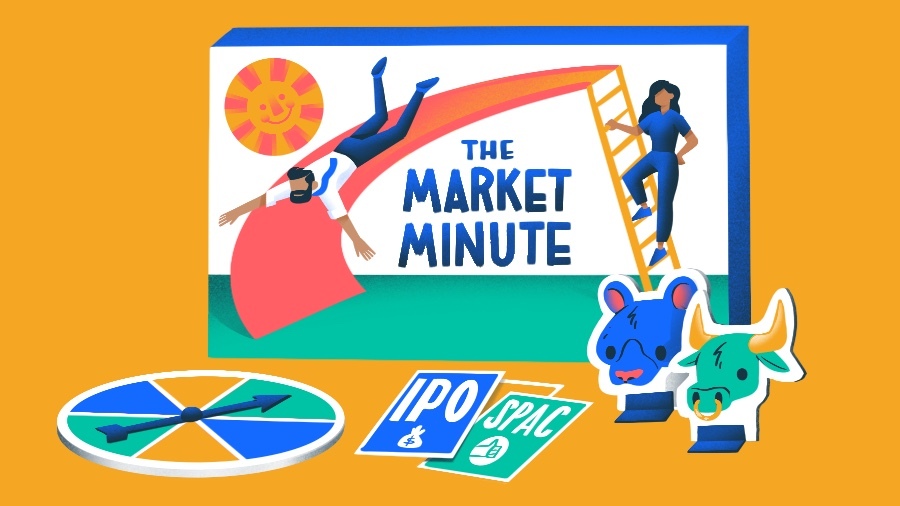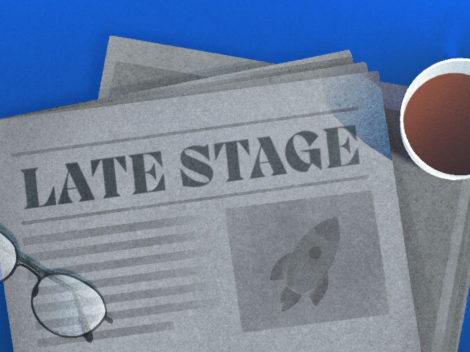Fundraising for a startup now is quite different than it was even six months ago.
While 2021 was a record year for venture investment, a perfect storm of inflation worries, turbulent public markets and geopolitical disruption have prompted more VCs and their limited partners to become skittish, making fundraising difficult for some startup founders. Early Crunchbase data shows that global venture funding in February dipped $10 billion month over month, though is still up significantly year on year.
Search less. Close more.
Grow your revenue with all-in-one prospecting solutions powered by the leader in private-company data.
I chatted with a few founders who raised money recently or were in the process of raising money. While their experiences differ, they agreed that the landscape has shifted in recent months. That means more due diligence, less inbound interest, and fewer crossover investors.
One founder of a startup in the healthcare space that’s attempting to raise a Series A round said the environment had changed “radically” in the last six months. The founder asked to remain anonymous as fundraising continues.
The “top three” conversations with investors three months ago were moving very quickly, and the company hoped to close the raise by the end of June, the founder said. Since then, the tone has changed and the speed at which investors are moving has slowed. Diligence requests and questions from investors are also more granular than before.
Due diligence takes longer
“I can’t tell you exactly what they’re thinking because I’m still trying to figure it out myself, but it’s the due diligence process that has gotten exponentially longer and with more questions and more hurdles,” the founder said. “It’s like these barriers have been put into place that didn’t exist three months ago to slow things down.”
The healthcare startup founder noted that inbound outreach from investors has dipped as well. Just a few months ago, the company would get at least one email a week from an investor trying to set up a meeting but that pace has gone down also, the founder said.
It’s frustrating “to go from that kind of feast to famine for circumstances that are completely out of your control and recognizably important…there are a lot of people who were formerly really excited to talk and to lead on the Series A who are rethinking their investment strategy just at the moment,” the founder said.
The founder continued: “They’re sitting on their capital and waiting to see what happens. And this is the sector of behavioral health, which is supposed to be the hottest sector of the moment.”
Investors, startups cautious on spending
Anyone who hasn’t raised money in the last year or so is “out on the street trying to raise,” according to another founder, whose startup is in the sales space and recently raised a Series B round. (The founder asked to remain anonymous as the round hasn’t been announced yet.)
That’s true of the companies trying to raise money from VCs, and VCs trying to raise money from LPs, the founder said.
The sales startup founder raised the company’s Series B round without issues, receiving five term sheets from seven investors it talked to. But two weeks later when Russia invaded Ukraine, company executives felt nervous that term sheets could be pulled and reached out to investors. While the lead investor, a deep-pocketed firm, didn’t seem fazed, it wasn’t the same sentiment from other VCs they reached out to, who were feeling some pressure from their LPs.
“Even if we had been two or three weeks later to enter the market, it would’ve been different for sure,” the founder said. “The market is changing day by day.”
The market conditions have changed dramatically in a span of weeks, he added.
“I’ve heard of founder friends of mine who have had term sheets pulled. I personally know of it,” the founder said. “I’ve had founder friends who have term sheets that got renegotiated, where the investor came back and asked for a 25 to 40 percent haircut on the valuation. And I’ve heard that raising money these days is way harder than it was raising money before.”
It’s something of a “mad rush to grab capital,” and companies are also pulling back on spend, he said.
Even in the case of the sales startup, which just raised a substantial Series B, its leaders have decided that they will be much more conservative with spending compared to what they thought they’d spend three weeks ago.
Crossover investors pull back
Usually after a company raises a large round of funding, they’ll feel some “pile in pressure” from other investors who want in. Kin Insurance, which raised an $82 million Series D earlier this month after canceling plans for a SPAC, felt less of that extra interest this time around, CEO Sean Harper said.
“We had one investor who had actually committed and asked for an allocation…they ended up not investing and it was specifically because of the Ukraine situation,” Harper said.
Kin was in a favorable position to raise money because a lot of investors were watching the company and guessing the SPAC wouldn’t happen because many SPACs were terminated. The company was able to raise the Series D fairly quickly because it already had investors’ attention.
Where the pullback in capital is most noticeable is with crossover investors, Harper said. In a way, the current situation is good news for VCs, who have committed capital and less competition from other types of investors.
Harper pointed out that Kin’s previous funding round–a nearly $64 million Series C last year–was led by hedge fund Senator Investment Group, while its most recent Series D didn’t have meaningful participation from crossover investors.
Many crossover investors (like hedge funds) had capital disappear with the stock market taking a dip. And instead of doing the hard work that comes with investing in a private company, they could invest in discounted stocks.
“As the public markets sort of pulled back, what we’ve sort of seen is the guys that were playing around the edges—the family offices, the hedge funds, the strategics, the foreign money—isn’t really there anymore,” Harper said.
Illustration: Dom Guzman

Stay up to date with recent funding rounds, acquisitions, and more with the Crunchbase Daily.











![Illustration of stopwatch - AI [Dom Guzman]](https://news.crunchbase.com/wp-content/uploads/Halftime-AI-1-300x168.jpg)
67.1K Followers